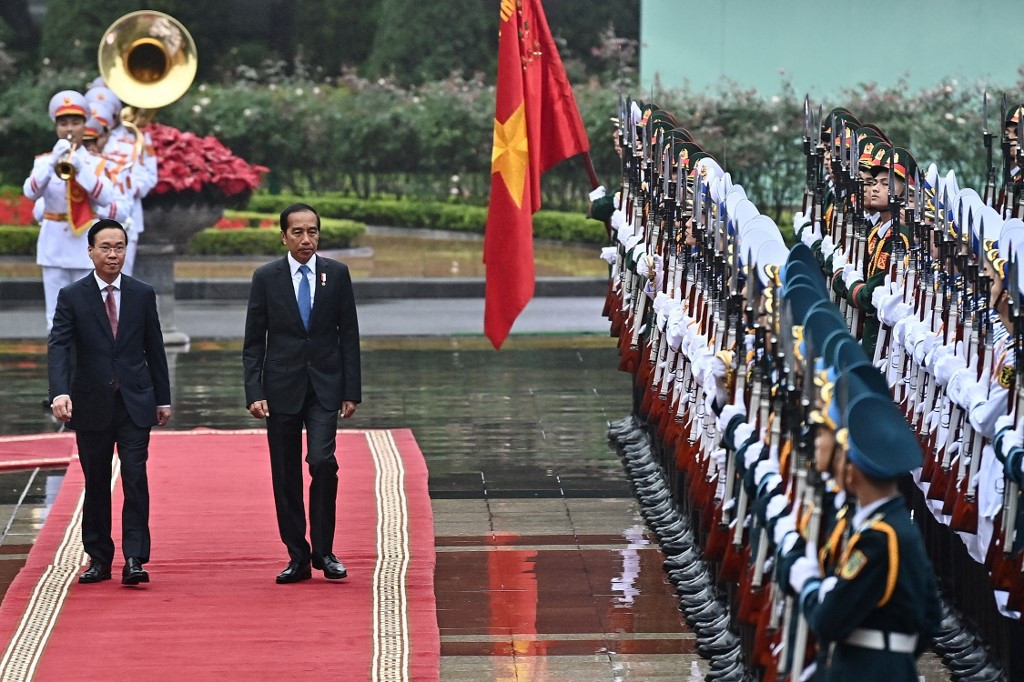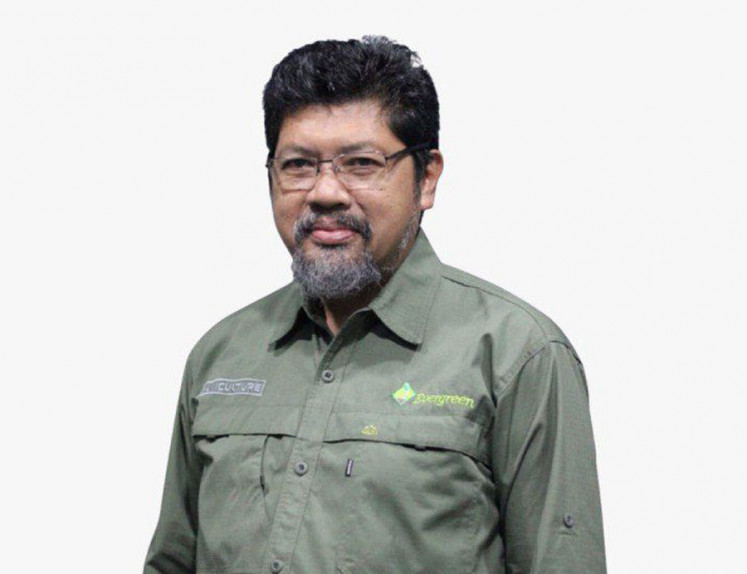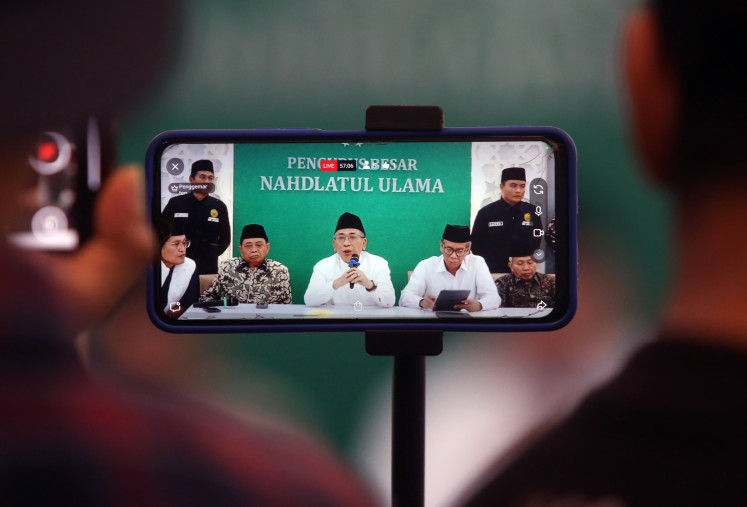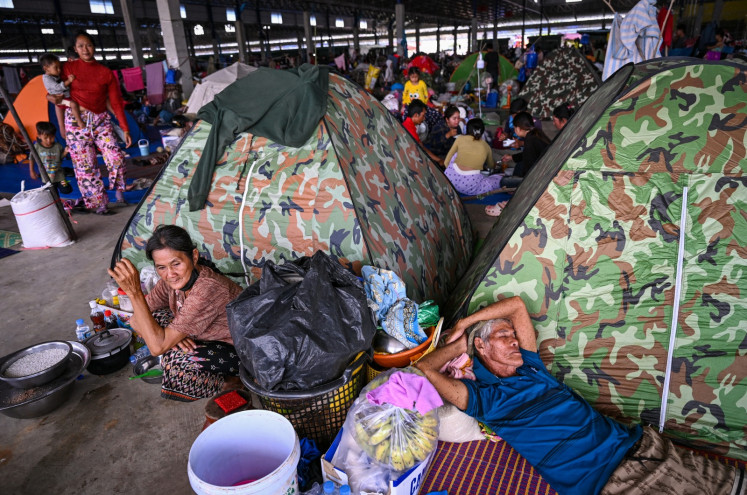Popular Reads
Top Results
Can't find what you're looking for?
View all search resultsPopular Reads
Top Results
Can't find what you're looking for?
View all search resultsIndonesia, Vietnam relations: Shared vision and commitment
With a more integrated digital economy, Indonesia and Vietnam can promote cross-border payments and transactions.
Change text size
Gift Premium Articles
to Anyone
T
he period from August to September marks a significant period for both Indonesia and Vietnam historically. After Sukarno proclaimed Indonesian independence on Aug. 17, 1945, Ho Chi Minh declared the independence of Vietnam on Sept. 2 of the same year.
Looking back at the past decade, Indonesia and Vietnam have enjoyed strong economic cooperation. Driven by our strong partnership and rapid economic development, bilateral trade and investment have grown exponentially. In 2023, bilateral trade reached US$13.8 billion in 2023, exceeding the target of $10 billion set by the leaders of both countries. Two-way investment between the countries also reached unprecedented figures.
This year marks a milestone for Indonesia-Vietnam bilateral relations, with President Joko “Jokowi” Widodo making a state visit to Hanoi in January. The key takeaway of the visit was the commitment to promote cooperation and collaboration to achieve the shared vision of becoming high-income countries by 2045.
As a follow-up to this visit, ministers of the two ASEAN countries have met to discuss the ways forward. This includes setting a new bilateral trade target of $18 billion by 2028 - reflecting our success in achieving the previous target.
The fulfillment of this new target lies in promoting cooperation on five key sectors that we consider the priority of Indonesia-Vietnam economic cooperation, namely agriculture, fisheries, renewable energy, the digital economy and high-tech industries.
With a combined population of more than 380 million, food security serves as a key foundation of economic development for both Indonesia and Vietnam.
As developing countries, agriculture and fisheries play important roles in ensuring national food security. In this sense, cooperation between the two countries should be focused on supporting each other and exploring ways to increase productivity. Moreover, being among the largest rice and fish producers in the world, cooperation between Indonesia and Vietnam is essential to not only ensure domestic sufficiency, but also regional food security.
Amid rapid economic growth, however, Indonesia and Vietnam must be able to address the issues of sustainability.
As industrialization tends to jeopardize air quality and environmental sustainability, Indonesia has set a net-zero emissions target by 2060 and Vietnam by 2050. Both countries are currently exploring ways to reach this target, to accelerate the transition from fossil fuels to renewable energy.
While commitments to reach these targets exist, their implementation remains a challenge. To this end, both countries need to double down on efforts in the energy transition, including exchanging best practices and sharing experiences, particularly on the implementation of the Just Energy Transition Partnership (JETP) framework, in which Indonesia and Vietnam are partners.
Furthermore, today the availability of renewable energy and efforts toward energy transition also become key elements in attracting quality investment, as investors now consider environmental, social, governance (ESG) issues a deciding factor for investment.
Given the strong demography of the working age population, cooperation in the digital economy is also a huge potential for both countries. Start-ups in both countries are rising at a rapid pace, and this positive momentum should be harnessed effectively.
With a more integrated digital economy, Indonesia and Vietnam can promote cross-border payments and transactions, which will speed up economic activities between both countries.
To fulfill the aspirations to become developed economies, it is important for both countries to focus on producing high value-added products, based on technology. Both Indonesia and Vietnam are developing their own expertise.
For instance, Vietnam’s electric vehicles, which are already entering Indonesia’s market, or Indonesia’s animal pharmaceutical businesses, one of which has just completed building the largest animal vaccine factory in Vietnam this year. The two countries should complement each other and together contribute to building a regional single production base in Southeast Asia.
Beyond 2024, amid the challenges, the prospect for Indonesia-Vietnam economic relations will continue to shine bright. New leaderships following the inauguration of Vietnam’s President To Lam in May 2024, followed by the inauguration of Indonesia’s new president in October 2024, are expected to invigorate cooperation between both countries.
Indonesia’s president-elect Prabowo Subianto is expected to continue the success of existing programs while adding extra focus on other sectors, such as promoting the development of human resources from early years. These extra sectors will create new avenues for Indonesia and Vietnam cooperation.
By riding the positive wave of the demographic bonus, the shared vision to become high-income countries, and the passion of the people, I am positive of the future of Indonesia and Vietnam.
Next year, Indonesia and Vietnam will celebrate an important milestone in our long-forged relationship, 70 years of diplomatic relations. This is a great opportunity for both countries to strengthen the partnership into higher levels.
While in the region, the increasing influence of Indonesia and Vietnam will be one of the key foundations for ASEAN to maintain its stability, centrality and unity. Hence promoting stability and security must continue to be at the top of the list for both countries, both in the bilateral context and in the context of ASEAN.
In this sense I am confident that both Indonesia and Vietnam will continue to be fully committed to contributing to peace, stability and prosperity in the ASEAN region and beyond.
***
The writer is Indonesian ambassador to Vietnam.











